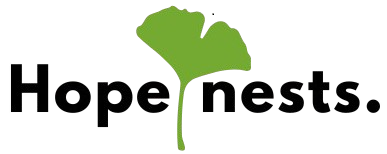“Egg freezing isn’t just about biology—it’s about choice, timing, and freedom. Here’s what every woman in her 20s and 30s needs to know.”
More women today are asking: “Should I freeze my eggs?” Whether it’s focusing on your career, waiting for the right partner, or simply wanting peace of mind, egg freezing has become a powerful option.
But with choice comes questions: Is it worth it? What’s the right age? What are the chances it will work?
At HopeNests, we believe in giving women clarity—not pressure—so you can make a decision that fits your future.
1. What Is Egg Freezing?
Egg freezing, or oocyte cryopreservation, is a process where your eggs are retrieved, frozen, and stored for future use. Later, they can be fertilized through IVF when you’re ready.
👉 Think of it as fertility insurance—not a guarantee, but a safeguard.
2. Why Women Freeze Their Eggs
- Focusing on education or career first
- Waiting for the right relationship
- Health concerns like PCOS or endometriosis
- Preserving fertility before cancer treatment
- Simply wanting options for the future
3. The Best Time to Freeze Your Eggs
- 20s: Eggs are healthiest and most plentiful—but few women think about it this early.
- Early 30s: Still a strong window for quality and quantity.
- Late 30s: Possible, but success rates decline as egg quality drops.
👉 Takeaway: The earlier, the better—but it’s never “too late” to consider your options.
4. Costs and Realities in Nigeria
Egg freezing is still new in Nigeria, with limited clinics offering the service. Costs can range from ₦1.5M–₦3M+, plus yearly storage fees.
👉 Lesson: It’s an investment, but one that can buy peace of mind and future possibilities.
5. What Egg Freezing Can and Cannot Promise
✅ It preserves younger eggs for later use.
✅ It gives women more time and flexibility.
❌ It does not guarantee pregnancy.
❌ Success still depends on egg quality, sperm quality, and overall health.
6. The Emotional Side of Egg Freezing
Many women feel empowered—but some feel conflicted, pressured, or even judged. Remember: this choice is deeply personal, and there is no “right” or “wrong.”
At HopeNests, we encourage women to seek information, weigh their priorities, and act from clarity—not fear.
Key Takeaways
- Egg freezing is a fertility preservation option, not a guarantee.
- The best results come when eggs are frozen in your 20s or early 30s.
- Costs in Nigeria are high, but rising access is changing the landscape.
- This decision is about freedom and choice—your timeline, your future.



